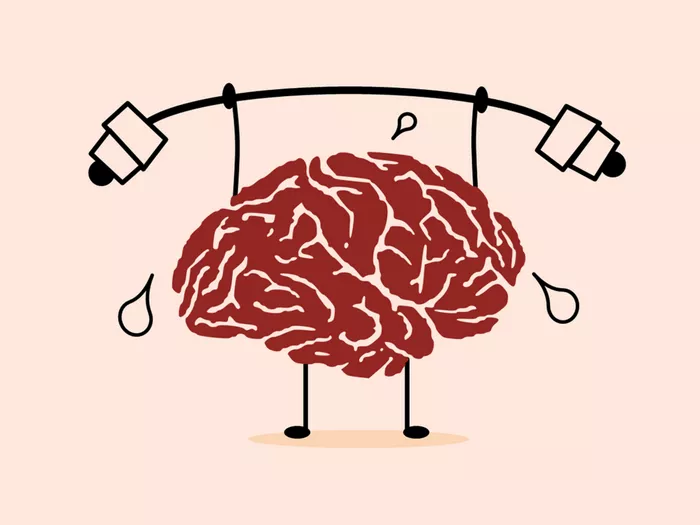Mental illness encompasses a wide range of conditions that affect mood, thinking, and behavior. While each mental illness presents its own set of challenges, some are particularly debilitating, severely impacting a person’s ability to function in daily life. In this article, we’ll explore various mental illnesses, their symptoms, and the factors that contribute to their debilitating nature. By gaining a deeper understanding of these conditions, we can work towards destigmatizing mental illness and promoting compassionate support for those affected.
Defining Debilitating Mental Illness
Debilitating mental illness refers to conditions that significantly impair a person’s ability to carry out daily activities, maintain relationships, and engage in work or social functions. These illnesses often cause severe distress and can lead to functional impairment, disability, and reduced quality of life. Debilitating mental illnesses may affect various aspects of a person’s life, including their physical health, emotional well-being, and social functioning.
Understanding the Complexity of Mental Illness
Mental illness is complex and multifaceted, with diverse causes, symptoms, and treatment approaches. It can arise from a combination of genetic, biological, environmental, and psychological factors. While some mental illnesses have clear biological underpinnings, others may be influenced by social or environmental stressors.
It’s important to recognize that mental illness is not a sign of weakness or personal failure but a medical condition that requires understanding, support, and appropriate treatment. By addressing the underlying factors contributing to mental illness and providing access to effective care, we can help individuals manage their symptoms and improve their quality of life.
Exploring Debilitating Mental Illnesses
While all mental illnesses have the potential to be debilitating, certain conditions are particularly severe in their impact on daily functioning and overall well-being. Let’s explore some of the most debilitating mental illnesses:
1. Major Depressive Disorder (MDD)
Major depressive disorder, commonly known as depression, is characterized by persistent feelings of sadness, hopelessness, and loss of interest or pleasure in activities. It can significantly impair a person’s ability to function, affecting sleep, appetite, energy levels, and concentration. Severe depression may lead to thoughts of suicide or self-harm.
2. Bipolar Disorder
Bipolar disorder is a mood disorder characterized by extreme fluctuations in mood, energy levels, and activity levels. Individuals with bipolar disorder experience periods of intense mania, marked by euphoria, impulsivity, and increased energy, followed by episodes of depression. These mood swings can disrupt relationships, work, and daily routines.
3. Schizophrenia
Schizophrenia is a chronic and severe mental illness that affects thinking, perception, and behavior. Symptoms may include hallucinations, delusions, disorganized thinking, and impaired social functioning. Schizophrenia can significantly impair a person’s ability to communicate, work, and maintain relationships.
4. Obsessive-Compulsive Disorder (OCD)
Obsessive-compulsive disorder is characterized by intrusive, unwanted thoughts (obsessions) and repetitive behaviors or rituals (compulsions) performed in response to these thoughts. OCD can consume a significant amount of time and energy, interfering with daily activities and causing distress and anxiety.
5. Post-Traumatic Stress Disorder (PTSD)
Post-traumatic stress disorder can develop after experiencing or witnessing a traumatic event. Symptoms may include intrusive memories, flashbacks, nightmares, avoidance of trauma-related stimuli, and heightened arousal. PTSD can interfere with daily functioning, relationships, and overall quality of life.
6. Eating Disorders
Eating disorders such as anorexia nervosa, bulimia nervosa, and binge-eating disorder can have severe physical and psychological consequences. These disorders involve disturbances in eating behaviors, body image, and weight regulation, leading to malnutrition, medical complications, and emotional distress.
The Impact of Stigma and Misconceptions
Stigma and misconceptions surrounding mental illness can exacerbate the challenges faced by individuals living with debilitating conditions. Negative attitudes, discrimination, and lack of understanding can prevent people from seeking help and accessing appropriate treatment. It’s essential to combat stigma through education, awareness, and advocacy efforts, promoting empathy, acceptance, and support for those affected by mental illness.
Promoting Compassionate Support and Treatment
Effective treatment for debilitating mental illnesses often involves a combination of medication, psychotherapy, support groups, and lifestyle modifications. It’s crucial for individuals experiencing mental health challenges to receive timely and comprehensive care tailored to their specific needs.
In addition to professional treatment, social support from family, friends, and peers can play a vital role in recovery and management of symptoms. Creating a supportive and nonjudgmental environment where individuals feel safe to seek help and express their emotions can make a significant difference in their journey towards healing and recovery.
Conclusion: Fostering Understanding and Empathy
Debilitating mental illnesses present significant challenges for individuals and communities alike. By fostering understanding, empathy, and support for those affected, we can create a more inclusive and compassionate society where mental health is prioritized and destigmatized.
It’s essential to recognize that mental illness is a complex and multifaceted issue that requires a holistic approach to treatment and support. By addressing the underlying factors contributing to mental illness, promoting access to quality care, and challenging stigma and misconceptions, we can work towards improving the lives of individuals living with debilitating conditions and promoting mental health and well-being for all.
[inline_related_posts title=”You Might Be Interested In” title_align=”left” style=”list” number=”6″ align=”none” ids=”7625,7622,7616″ by=”categories” orderby=”rand” order=”DESC” hide_thumb=”no” thumb_right=”no” views=”no” date=”yes” grid_columns=”2″ post_type=”” tax=””]































